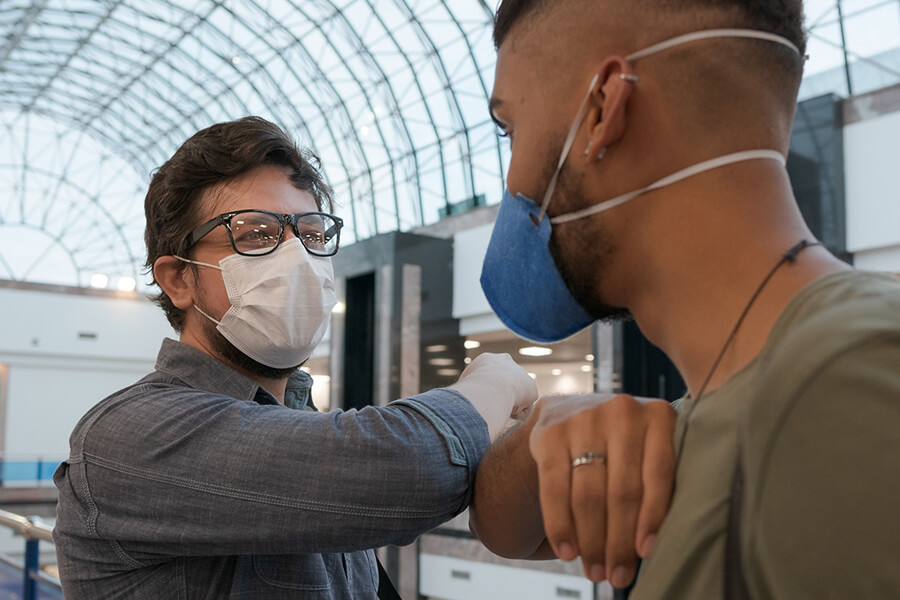
Writers Series: What if maybe after all
Writers Series: Imagining Life After COVID-19—This series sits outside of our evidence-based research. It complements The Conference Board of Canada’s work by exploring potential post-COVID-19 outcomes through a speculative lens. In partnership with the Ottawa’s International Writer’s Festival and our own Skills & Education and Inclusion teams, these writers imagine what the near future might look like from their own unique perspectives.
Maybe the handshake will be gone forever. I will not miss it. I once didn’t get an apartment I was trying to rent because the landlord said he could never trust a man with palms as soft as mine. I suspected that telling him I was a writer would not raise his confidence in my ability to pay the rent on time, and I knew for certain that informing him that I wasn’t a man wouldn’t help my case either, so I said nothing.
I will not mourn the handshake.
Maybe we will all learn to greet each other from a safe distance and place our hand over our hearts to say hello. I will practise my sincere from-the-waist bowing, and air-hug skills, to ready myself for the reopening.
I wake up from dreams of an epidemic of kindness. Some mornings it takes several minutes for me to remember yesterday’s news.
I’ve been riding out the pandemic in London, Ontario, at my partner’s place, a little townhouse complex where before the lockdown I had never heard the names of any of the neighbours. Now I know Melanie is a nurse who does Zumba in her basement every other day at 6 p.m., and the old man with the whippet is named Alex and he misses playing golf a lot. I’m watering the succulent cutting Lucia from unit 757 brought over and I think it is going to re-root itself okay. Massimo from next door likes how the blue spruce in our backyard looks since I trimmed all the lower branches back, and everyone loves the new birdfeeder. We had a visit from two orioles and a bossy cardinal this morning, all before my second cup of coffee.
On good days I allow myself to hope for moves toward changes like truly universal health care and a basic income for everyone. Housing as a human right. Clean water for drinking and washing for every citizen. I lie awake and imagine things like tiny house villages for seniors with fruit tree orchards and community gardens and communal peach canning parties and lawns replaced with vegetable gardens. I wake up from dreams of an epidemic of kindness. Some mornings it takes several minutes for me to remember yesterday’s news.
I have promised myself I will never buy premade tortillas ever again.
I’ve been cross-stitching more, and I’m finally going to replace my knitting supplies. I lost them in a house fire in 2006, and I just never picked it up again. The last thing I knit was a toque for my grandmother, to keep her head warm when she went outside on the deck for a cigarette. She died 11 years ago. My aunt gave me the toque back, and I still have it. It still smells of smoke, but not of her anymore.
For the last 15 years or so, I’ve made my living on the road, and that just won’t be anymore after this, not in any way that used to feel so familiar. Will writers even sign books and hand them back to their new owner in the after? How can I even wonder these things when people are dying and I am safe at my desk waiting for the UPS guy to deliver the coffee beans we ordered from Toronto? I listen to news reports about sanitization tunnels outside airports and ultraviolet virus-killing suitcase treatments, and I know that this future will in no way resemble the some days’ endless stream of highways and high schools and hotel rooms and hospitality suites and handshakes that my work used to be.
So I cook, I watch the birds, I skip rope every day. I call my mother. I write.
I miss crowded theatres. I miss lining up outside a great restaurant, not a grocery store. I miss swimming.
But I do not miss the handshake.


Comments